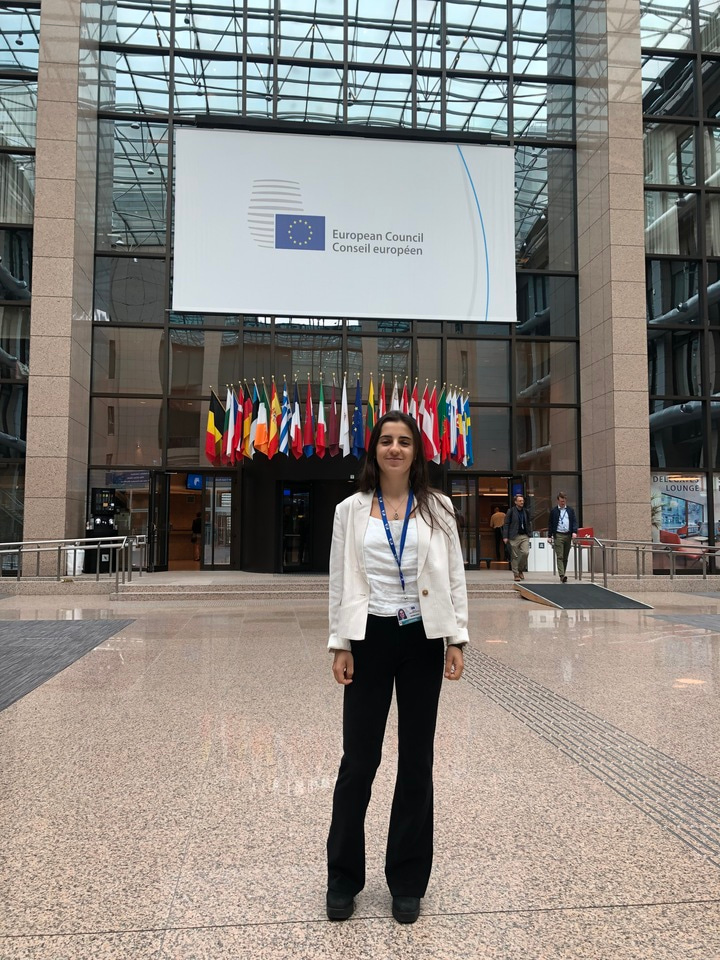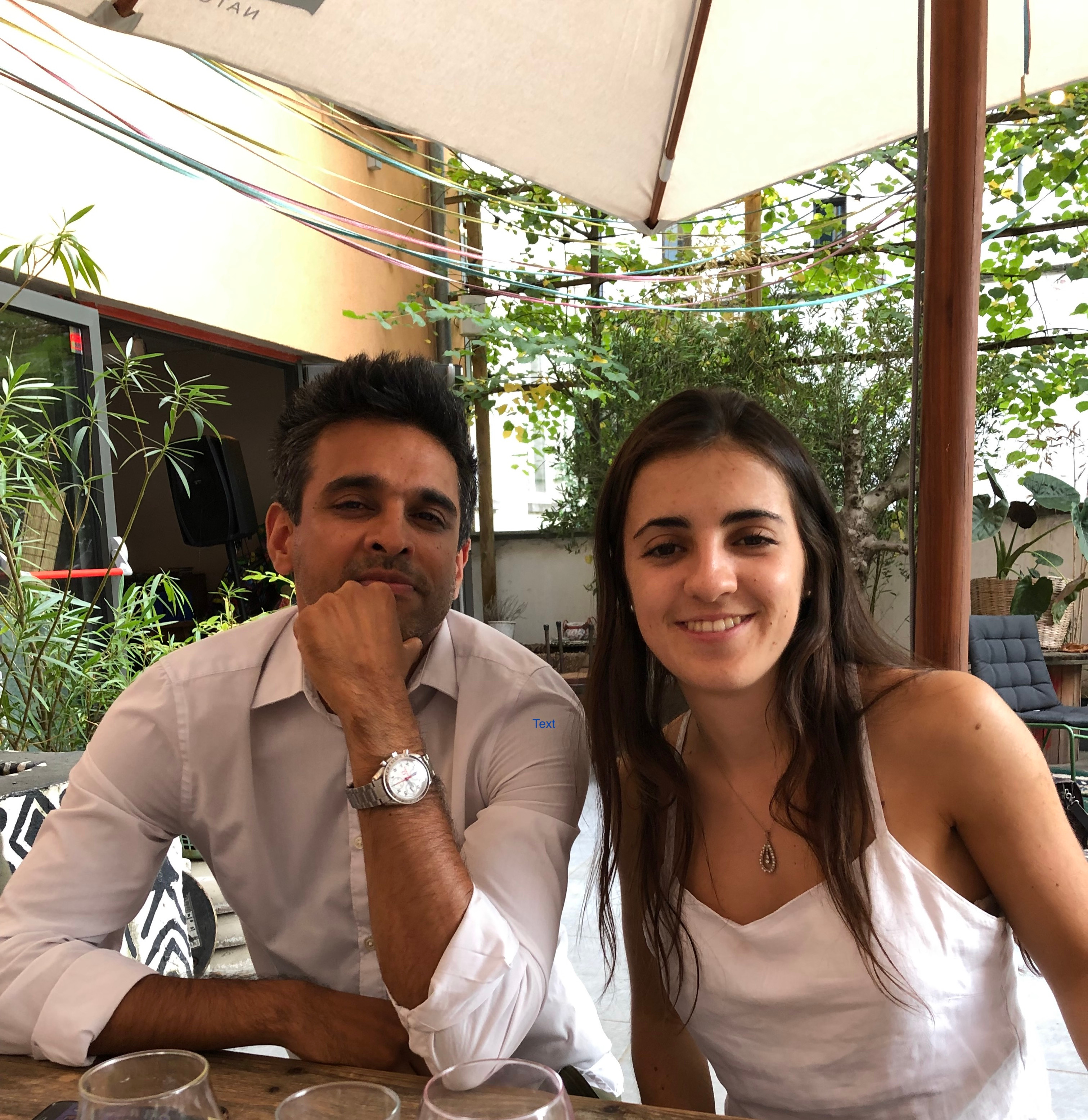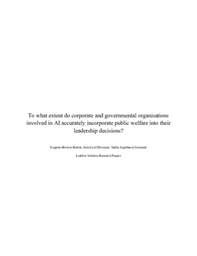Reflecting on my experience at the European Commission (LiA 2022)

I came into my LiA placement not really knowing what to expect. I thought that being in a large, bureaucratic institution like the European Commission, wouldn’t lend itself to much input from an undergraduate intern. Still, I was determined to make the most of the opportunity and learn as much as I could, and I was pleasantly surprised.
Initially I was tasked with creating a public-use document, showcasing the European Commission’s development projects in India. I collated information and metrics on a variety of projects, e.g., sustainable cities, green investment funds, decarbonisation of energy extraction, and natural disaster relief. I drafted texts explaining these projects, in a simplified and summarised form, focusing on their impact and quantifying it. My LiA project aims to make DG-INTPA's work more transparent, allowing the public to engage with it. This is important given the European Commission is the bureaucratic arm of the EU, meaning officials are not elected; thus, increasing public participation ensures that the Commission is accountable to the European population. Increasing accountability has been shown to improve democratic systems and processes; my LiA project aims to have a positive impact on this front.
However, during my placement I spent time on many different tasks, that also enriched my experience. I attended many meetings with different stakeholders and partner organizations like the UN and national/regional development banks like: ADB, EIB, GiZ, COFIDES. I gained exposure to other institutions in the EU like the European Council, Parliament, and External Action Service (diplomatic arm of the EU). I managed and organized the data from some of DG-INTPA previous funding and investments. I was even able to make suggestions for some of the projects in India.
I have my mentor, Sib, to thank for exposing and involving me in such a wide variety of activities. More broadly, he also helped me in understanding the functioning of DG-INTPA, the Commission, and the European Institutions. He introduced me to an abundance of interesting people working across the Commission and outside of it; I had the chance to speak to many of them, which was helpful for me to understand their roles and careers. I realized that people with similar jobs often come from diverse backgrounds; thus, one should not obsess on following a set, structured career path, but rather be open to different experiences and opportunities. More importantly, I genuinely enjoyed conversing with many people I met.
In terms of work environment, I appreciated the openness and positive environment at DG-INTPA. It is a culture of frequent communication and knowledge sharing, where if someone doesn’t know something, they can easily phone anyone at the organization. Similarly, most people are very willing to help when asked; many left their doors open and were very willing to chat and involve me in work if I asked for it. I think most took their work seriously and understood it’s importance, but it did not translate to stress and hostility, which I found was a very positive aspect and made the work experience more enjoyable.
Initially I also thought the age gap would be a challenge, I was working with people 10, 20 or even 30 years older than me. But I was glad that most people treated me like any other adult. I realized that people are just people, as banal as it sounds. Whether it be a director-general or another intern, I realized there’s no reason to fear or be intimidated by people higher up in the hierarchy: talk to them like a regular person and engage them in an interesting topic, and you can have a meaningful conversation, with most people.
Finally, I learnt that opportunities like this one function reciprocally: you get as much as you give. If I wanted to learn more; I had to ask to be involved in more work; if I wanted to talk to a person working in a different field or topic, I had to seek that person. My mentor, Sib, always facilitated, but I had to ask for the things I was interested in doing. Even so, Sib made sure to help me gain exposure to a variety of things, since I was in more of an exploratory phase and hadn't narrowed down my interests yet.
For anyone interested in international development, here is what I learned about the sector and specifically international development at the EU. Firstly, it’s demand driven. I was weary of working for a large development aid institution - they’re often criticized for being out of touch with recipients and imposing their agendas on recipient governments. This was not the case, at least in the sector (Asia-Pacific) I was working in. Countries reach out to the EU, to discuss potential collaboration, not vice versa. If a country does not want to work on a certain issue, the EU cannot “force” projects on them; more like a partnership rather than an asymmetric donor/recipient relationship. This also makes the work more politically driven. There is less (or no) work being done in countries that don’t align with the EU’s political values, no matter how much the people of that country may be suffering (e.g., Afghanistan, Myanmar). This made sense to me in the context of DG-INTPA as an EU institution, but I’m don’t think it aligns with the altruistic motives of international development.
Secondly, it’s not only about money, it’s about knowledge sharing too. A lot of funding to other countries is given in the form of grants rather than loans, meaning it is hands free, no strings attached. If countries ask for technical assistance (meaning knowledge sharing and help with implementation of programs), it is arranged. From my experience, using both in conjunction is the most cost-effective way to make sure development aid money is spent efficiently.
Thirdly, they place importance on additionality (i.e., the counterfactual): it’s not about funding good projects, but rather funding projects that would have not been carried out otherwise, i.e., would not be implemented without the EU’s funding.
All in all, it was an unforgettable experience that enriched my professional and personal life more than I could've imagined. I want to thank Sib Hayer, LSE LIFE and the Laidlaw Foundation for this great opportunity.


Please sign in
If you are a registered user on Laidlaw Scholars Network, please sign in
Thoroughly insightful read! It's heartening to see such a holistic take on your experience at DG-INTPA. Your perspective on the dynamic between the EU and its partner nations, especially emphasizing the notion of partnership over donor/recipient relationships, is particularly enlightening. It's evident that opportunities like these can be transformational when approached with the right mindset and mentorship. Kudos to you for seizing it and thank you for sharing your journey!